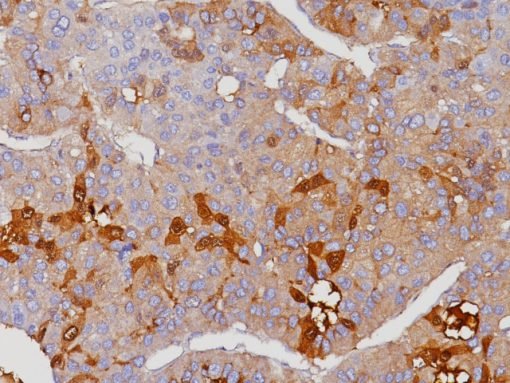Description
Programmed death 1 (PD-1) is a cell surface co-receptor within the CD28/CTLA-4 T cell
family, functioning as an immunological downregulator via a dual inhibitory mechanism.
PD-1 is present on the surface of activated T and B lymphocytes. The PD-1/PD-L1
signaling pathway may regulate anti-tumor immunity. PD-L1, a ligand linked to PD-1,
confers protection to tumor cells by triggering apoptosis in activated T cells or by
suppressing cytotoxic T cells. Therapies targeting the PD-1 receptor have demonstrated
remarkable efficacy, yielding elevated clinical response rates in patients with diverse
cancer types. PD-1 positive tumor-infiltrating lymphocytes (TIL) are correlated with
unfavorable prognosis in human breast malignancies and may be beneficial in antibody
therapy aimed against the PD-1/PD-L1 signaling pathway . Therapies aimed at PD-1 and
its ligand, PD-L1, have demonstrated promising outcomes in non-small-cell lung
carcinoma, renal cell carcinoma, and melanoma.






